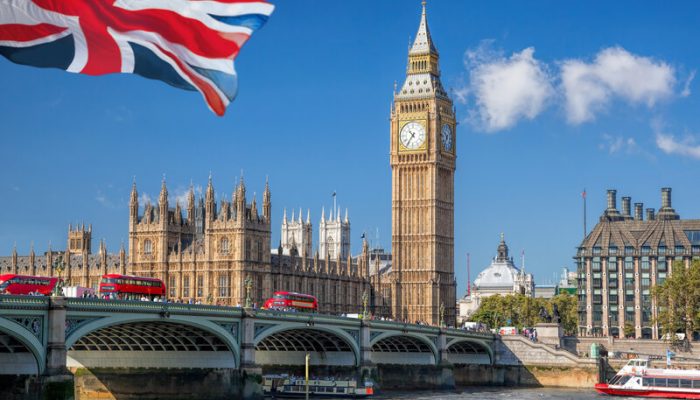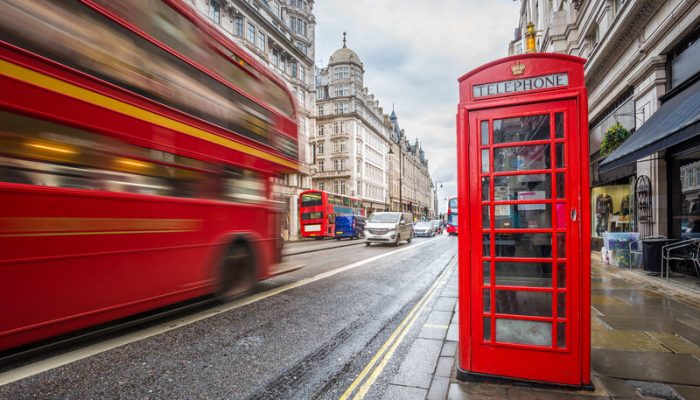Indefinite Leave to Remain (ILR): Frequently Asked Questions
Indefinite Leave to Remain (ILR): Frequently Asked Questions

Not quite British citizenship , and yet more than just a visa…the status of ‘Indefinite Leave to Remain’ has its own specific characteristics. In this post, we take a look at some of the most frequently asked questions from those who have been granted this status, including how to prove it, the rights that it gives you, and how it can be lost or maintained.
Q: What is ILR?
A: Indefinite Leave to Remain (ILR) is an immigration status which allows the person who holds it to live and work in the UK for an unlimited time, without any need to apply for a visa extension.
If you are granted ILR, you are able to leave and re-enter the UK without any immigration restrictions. Unlike British citizenship, which is granted for life, an individual’s ILR can lapse in certain circumstances, for example if they leave the UK for a period of two years or more (see section: Can my indefinite leave to enter or remain be taken away? ).
Q: How do I prove that I have Indefinite Leave to Remain?
A: There are various ways in which ILR can be documented:
- a Biometric Residence Permit (BRP). If you are settled in the UK your BRP will display either ‘Indefinite Leave to Remain’, ‘Indefinite Leave to Enter’, or ‘No Time Limit’;
- a No Time Limit (NTL) stamp in your passport (expired or otherwise), stating ‘There is at present no time limit on the holder’s stay in the United Kingdom’;
- an Indefinite Leave to Enter (ILE) stamp in your passport (expired or otherwise), stating ‘Given indefinite leave to enter the United Kingdom’;
- an ILR stamp in your passport (expired or otherwise), stating ‘given leave to remain in the UK for an indefinite period;
- an ILR endorsement in your passport (expired or otherwise);
- a letter from the Home Office confirming your right to remain indefinitely in the UK.
Q: What if I do not have a document to prove that I have ILR?
A: If you have ILR, but you do not have a document to prove it, you can apply for confirmation of this status in the form of a Biometric Residence Permit (BRP). You can do this through an administrative process called a no time limit (NTL) application.
You are also able to make an NTL application if you previously held a passport which contained proof of your ILR but this has been lost or stolen, or has expired. If this is the case, you may have to provide extra information such as a crime reference number or a police report, in order to prove to the Home Office that you are the same person who has previously been granted ILR.
If you make an application for a permit showing your ILR and you do not have any documentary evidence of your ILR, the Home Office will check all their available systems and files for any records that provide evidence that you have been granted ILR.
It is not mandatory for you to apply for a residence permit, or indeed to have any documentary evidence of your ILR. However, there are benefits which make it more convenient for you to do so. A BRP has enhanced security features which make it less likely to be used fraudulently than old-style passport stamps or endorsements. It can be used when you travel to and from the UK to facilitate your travel, as it evidences your right to enter and remain in the UK.
Also, it proves to any employer that you have the right to work in the UK. Employers are required under Section 25 of the Immigration Act 2016 to check that their employees have the right to work. If you do not have any documents to prove that you have ILR, your employer will have to contact the Home Office’s Employer Checking Service to verify that you have the right to work. If you have an NTL BRP, you can demonstrate your entitlement to work more easily by simply showing it to your employer.
Q: Do I need permission to work in the UK once I have ILR?
A: Once your application for ILR is approved, you do not need permission from a Government Department to take up new employment, or to change your employment. Moreover, any restrictions that were previously placed on your hours or type of employment are lifted.
You may engage in any kind of business or profession, self-employed or otherwise (as long as you comply with any general or statutory regulations for that business or professional activity).
Q: Can I live or work in the UK after I have been granted Indefinite Leave to Remain?
A: Once you have ILR, there are no longer any restrictions on your living and working in the United Kingdom.
However, if you are thinking of going to live or work in the Isle of Man or one of the Channel islands, you should first consult the immigration authorities of the Island concerned.
Q: Can I study in the UK with ILR?
A: Once you have ILR, you are free to study in the UK. You will also be eligible to pay home tuition fees (i.e. the same rate as British, EU, EEA and Swiss citizens) at higher education institutions, and to apply for student finance, provided that you have been ordinarily resident in the UK for at least 3 years before the first day of the academic year of your course. (‘Ordinarily resident’ means that you are habitually and normally resident in the UK, and any absences have been of a temporary or occasional nature).
Q: Can I vote in the UK once my settlement application has been approved?
A: If you have ILR, you can only vote in national and local elections and referenda in the UK if you are a qualifying Commonwealth citizen. The definition of a Commonwealth citizen can be found on the Electoral Commission’s website .
Q: Can I access healthcare once I have ILR?
A: Generally, healthcare will be available to you if you have ILR and you are ordinarily resident (you are habitually and normally resident in the UK, and any absences have been of a temporary or occasional nature).
For more information, see the government’s guidance on healthcare.
Q: Can I access public funds once I have Indefinite Leave to Remain?
A: If you have ILR, you have access to public funds. You are able to claim job seekers’ allowances and other benefits.
Q: Do I still need to register with the police once I am settled in the UK?
A: If you were previously required to report any changes in your circumstances to the police, you no longer need to do so once you are granted ILR. Your police registration certificate will be stamped to show this.
Q: What happens to my ILR if I leave the UK?
A: In order to be considered as settled in the UK, you will have to be able to show that you are habitually and normally resident in the UK, and that any absences have been of a temporary or occasional nature.
If you leave the UK, you will normally be readmitted for settlement as a returning resident, provided that:
- you did not receive assistance from public funds towards the cost of leaving the UK;
- you had indefinite leave to enter or remain here when you last left;
- you have not been away for longer than two years ; and
- you are returning for the purpose of settlement.
If your absence from the UK is for longer than two years but you can still demonstrate that you had indefinite leave to enter or remain here when you last left, and you are returning for the purpose of settlement, you may still qualify for admission as a returning resident if, for example, you have maintained strong connections with the UK.
You do not require a visa to return to the UK provided you are returning for settlement after an absence of two years or less. However, if you are returning for settlement to the UK after an absence of over 2 years, you are advised to apply for entry clearance at the nearest British Diplomatic Post in the country in which you are living. This should then facilitate your re-admission to the UK.
You will not be re-admitted as a returning resident if you are resident overseas and only return to the UK for short periods.
Q: What if I was outside the UK for 2 years due to COVID-19?
A: If you were prevented from returning to the UK due to the COVID-19 pandemic, and as a result you spent 2 years or more outside the UK resulting in the lapse of your ILR, you will be able to apply under the Returning Resident visa route if:
- Your ILR lapsed on or after 24 January 2020, and
- You have been unable to return to the UK due to travel restrictions in place relating to coronavirus.
You will still need to complete the online Returning Resident application form and pay the fee of £516. As part of your application you will need to explain how coronavirus restrictions prevented your return to the UK.
For more information, please see our previous blog post on Returning Resident Visa Applications and Covid-19 .
Q: What if I have a child born in the UK? Will they be British?
A: If you have a child who is not a British citizen, but who was born in the UK on or after 01 January 1983, they may be able to register as a British citizen once you have ILR.
Any child born to you in the UK while you remain settled in the UK may be a British citizen automatically at birth.
Q: What about family members who want to live with me in the UK?
A: Family members who are not British citizens may be able to join you in the UK. There are different rules depending on what type of family member they are (partner/spouse/fiancé(e), child, parent, or adult coming to be cared for by a relative). The different rules for applying for family visas can be found here .
Q: Can my indefinite leave to enter or remain be taken away?
A: It is possible to lose ILR in certain circumstances.
If you commit a serious crime and you are deported from the UK, your ILR will be invalidated.
Your ILR will be revoked if:
- you are liable to deportation but cannot be removed for legal reasons, such as the UK’s obligations under the Refugee Convention or the European Convention on Human Rights (ECHR);
- you obtained leave by deception ; or
- you were granted leave as a refugee and cease to be a refugee.
Under Paragraph 20 of the Immigration Rules , your ILR will lapse if you stay outside the UK for a continuous period of more than two years, as you will be considered to be no longer present and settled in the UK.
If you wish to re-enter the UK after two years, you will have to apply for a Returning Resident visa (see above at What happens if I leave the UK? ).
Q: I have pre-settled/settled status. Is this the same as ILR?
Pre-settled status and settled status are the two types of status granted to EEA nationals who applied through the EU Settlement Scheme before it closed to applications on 30 June 2021. Settled status is also referred to as “unlimited leave granted by virtue of Appendix EU.”
Individuals with pre-settled status have the right to live, work and study in the UK. However, this is time limited, lasting only for a period of five years. Those with settled status (unlimited leave granted by virtue of Appendix EU) have the right to live, work and study in the UK indefinitely, without immigration restrictions.
The main difference between ILR and settled status (unlimited leave granted by virtue of Appendix EU) is the length of time that an individual can spend outside the UK. A person with unlimited leave granted by virtue of Appendix EU is able to leave the UK for five years without their settled status lapsing (or four years if the person is a Swiss national). However, a person with ILR can only leave the UK for two years before their ILR will lapse (see above at What happens if I leave the UK? ).
Q: If my indefinite leave to enter or remain is revoked, can I challenge this?
A: There is no longer any right to appeal a decision to revoke ILR so the only way to challenge revocation is by judicial review. There may be a basis on which to challenge revocation under Section 76(2) of the Nationality, Immigration and Asylum Act 2002 by way of judicial review if the Secretary of State has made an irrational decision to revoke or has otherwise made an unlawful decision to revoke.
For more information, please see our previous blog post: Revocation of ILR which has been obtained by deception .
Contact our Immigration Barristers
For expert advice and assistance regarding an application for Indefinite Leave to Remain or Settlement in the UK, contact our immigration barristers on 0203 617 9173 or complete our enquiry form below.
Related Articles

The Quickest Ways to Get ILR in the UK
In this first or two posts, we provide an overview of the quickest ways to obtain indefinite leave to remain (ILR) status in the UK. Other routes, such as the 5, 10, 20 year routes to settlement and how dependants.

Right of Abode in the UK for Commonwealth Citizens
In this post we look at some of the most frequently asked questions about the right of abode in the UK for Commonwealth citizens. This post covers: what the right of abode is, how to find out if you have the right.

New Guidance on Varying a Settlement ILR Application and Granting Permission to Stay
The Home Office has published new guidance on when a decision maker should vary an application for settlement/indefinite leave to remain and grant permission to stay instead. Settlement: guidance on when to vary.

Applying for Indefinite Leave to Remain: Special Considerations for Closed Categories
In the last three years, the Entrepreneur, Investor and Sole Representative of an Overseas Business category have all closed to new entrants. Those who already have a grant of leave in the category or have applied.

Criminality, Serious Harm & Immigration Decisions
When making an application for entry clearance or leave to remain (permission to stay) in the UK, migrants must meet various suitability requirements and must show that their application does not fall for refusal.
SEE HOW OUR IMMIGRATION BARRISTERS CAN HELP YOU
To arrange an initial consultation meeting, call our immigration barristers on 0203 617 9173 or fill out the form below.
Indefinite Leave to Remain ILR: A Complete Guide

Not quite citizenship , and yet more than just a visa … the status of Indefinite Leave to Remain or ILR has its own specific characteristics. In this post, we take a look at some of the most frequently asked questions from those who have been granted Indefinite Leave to Remain status, including how to prove it, the rights that it gives you, and how it can be lost or maintained.
What is ILR?
Indefinite Leave to Remain (ILR) is an immigration status which allows the person who holds it to live and work in the UK for an unlimited time, without any need to apply for a visa extension.
If you are granted Indefinite Leave to Remain, you are able to leave and re-enter the UK without any immigration restrictions. Unlike British citizenship, which is granted for life, an individual’s ILR can lapse in certain circumstances, for example if they leave the UK for a period of two years or more (see Can my indefinite leave to enter or remain be taken away? below ).
Unlike P ermanent Residence, Indefinite Leave to Remain is a status given to non-EEA nationals. If you have ILR and your home is the UK, you are regarded as being settled in the UK.
How do I prove that I have Indefinite Leave to Remain?
There are various ways in which Indefinite Leave to Remain can be documented:
- a Biometric Residence Permit (BRP). If you are settled in the UK your BRP will display either ‘Indefinite Leave to Remain’, ‘Indefinite Leave to Enter’, or ‘No Time Limit’;
- a No Time Limit (NTL) stamp in your passport (expired or otherwise), stating ‘There is at present no time limit on the holder’s stay in the United Kingdom’;
- an Indefinite Leave to Enter (ILE) stamp in your passport (expired or otherwise), stating ‘Given indefinite leave to enter the United Kingdom’;
- an ILR stamp in your passport (expired or otherwise), stating ‘given leave to remain in the UK for an indefinite period;
- an ILR endorsement in your passport (expired or otherwise);
- a letter from the Home Office confirming your right to remain indefinitely in the UK.
What if I do not have a document to prove that I have ILR?
If you have Indefinite Leave to Remain, but you do not have a document to prove it, you can apply for confirmation of this status in the form of a Biometric Residence Permit (BRP). You can do this through an administrative process called a no time limit (NTL) application.
You are also able to make an NTL application if you previously held a passport which contained proof of your ILR but this has been lost or stolen, or has expired. If this is the case, you may have to provide extra information such as a crime reference number or a police report, in order to prove to the Home Office that you are the same person who has previously been granted ILR.
If you make an application for a permit showing your Indefinite Leave to Remain and you do not have any documentary evidence of your ILR, the Home Office will check all their available systems and files for any records that provide evidence that you have been granted Indefinite Leave to Remain.
It is not mandatory for you to apply for a residence permit, or indeed to have any documentary evidence of your ILR. However, there are benefits which make it more convenient for you to do so. A BRP has enhanced security features which make it less likely to be used fraudulently than old-style passport stamps or endorsements. It can be used when you travel to and from the UK to facilitate your travel, as it evidences your right to enter and remain in the UK.
Also, it proves to any employer that you have the right to work in the UK. Employers are required under Section 25 of the Immigration Act 2016 to check that their employees have the right to work. If you do not have any documents to prove that you have ILR, your employer will have to contact the Home Office’s Employer Checking Service to verify that you have the right to work. If you have an NTL BRP, you can demonstrate your entitlement to work more easily by simply showing it to your employer.
To discuss your application for Indefinite Leave to Remain with one of our immigration barristers, contact our ILR settlement lawyers on 0203 617 9173 or complete our enquiry form below.
Do I need permission to work in the UK if I have ILR?
Once your application for Indefinite Leave to Remain is approved, you do not need permission from a Government Department to take up new employment, or to change your employment. Moreover, any restrictions that were previously placed on your hours or type of employment are lifted.
You may engage in any kind of business or profession, self-employed or otherwise (as long as you comply with any general or statutory regulations for that business or professional activity).
Can I live or work in the UK if I have Indefinite Leave to Remain?
Once you have Indefinite Leave to Remain, there are no longer any restrictions on your living and working in the United Kingdom.
However, if you are thinking of going to live or work in the Isle of Man or one of the Channel islands, you should first consult the immigration authorities of the Island concerned.
Can I study in the UK if I have ILR?
Once you have ILR, you are free to study in the UK. You will also be eligible to pay home tuition fees (i.e. the same rate as British, EU, EEA and Swiss citizens) at higher education institutions, and to apply for student finance, provided that you have been ordinarily resident in the UK for at least 3 years before the first day of the academic year of your course. (‘Ordinarily resident’ means that you are habitually and normally resident in the UK, and any absences have been of a temporary or occasional nature).
Can I vote in the UK if I have Indefinite Leave to Remain?
If you have ILR, you can only vote in national and local elections and referenda in the UK if you are a qualifying Commonwealth citizen. The definition of a Commonwealth citizen can be found on the Electoral Commission’s website .
Can I access healthcare if I have ILR?
Generally, healthcare will be available to you if you have ILR and you are ordinarily resident (you are habitually and normally resident in the UK, and any absences have been of a temporary or occasional nature).
For more information, see the government’s guidance on healthcare.
Can I access public funds if I have Indefinite Leave to Remain?
If you have ILR, you have access to public funds. You are able to claim job seekers’ allowances and other benefits.
Do I still need to register with the police once I have ILR?
If you were previously required to report any changes in your circumstances to the police, you no longer need to do so once you are granted Indefinite Leave to Remain. Your police registration certificate will be stamped to show this.
What happens if I leave the UK after I have been granted ILR?
If you leave the UK following a grant of Indefinite Leave to Remain, you will normally be readmitted for settlement as a returning resident, provided that:
- you did not receive assistance from public funds towards the cost of leaving the UK;
- you had indefinite leave to enter or indefinite leave to remain here when you last left;
- you have not been away for longer than two years ; and
- you are returning for the purpose of settlement.
In order to be considered as settled in the UK, you will have to be able to show that you are habitually and normally resident in the UK, and that any absences have been of a temporary or occasional nature.
If your absence from the UK is for longer than two years but you can still demonstrate that you had indefinite leave to enter or indefinite leave to remain here when you last left, and you are returning for the purpose of settlement, you may still qualify for admission as a returning resident if, for example, you have maintained strong connections with the UK.
You will not be re-admitted as a returning resident if you are resident overseas and only return to the UK for short periods.
You do not require a visa to return to the UK provided you are returning for settlement after an absence of two years or less. However, if you are returning for settlement to the UK after an absence of over 2 years, you are advised to apply or an entry clearance at the nearest British Diplomatic Post in the country in which you are living. This should then facilitate your re-admission to the UK.
What if I have a child born in the UK after I have been granted ILR?
If you have a child who is not a British citizen, but who was born in the UK on or after 01 January 1983, they may be able to register as a British citizen once you have Indefinite Leave to Remain.
Any child born to you in the UK while you remain settled here may be a British citizen automatically at birth.
Can family members join me in the UK once I have been granted ILR?
Family members who are not British citizens may be able to join you in the UK. There are different rules depending on what type of family member they are (partner/spouse/fiancé(e), child, parent, or adult coming to be cared for by a relative). The different rules for applying for family visas can be found here .
Can my Indefinite Leave to Remain be taken away?
It is possible to lose ILR in certain circumstances.
If you commit a serious crime and you are deported from the UK, your ILR will be invalidated.
Your ILR will be revoked if:
- you are liable to deportation but cannot be removed for legal reasons, such as the UK’s obligations under the Refugee Convention or the European Convention on Human Rights (ECHR);
- you obtained leave by deception ; or
- you were granted leave as a refugee and cease to be a refugee.
Under p aragraph 20 of the Immigration Rules , your ILR will lapse if you stay outside the UK for a continuous period of more than two years, as you will be considered to be no longer present and settled in the UK.
If you wish to re-enter the UK after two years, you will have to apply for a Returning Resident visa (see What happens if I leave the UK? above ).
Applying for Indefinite Leave to Remain? Contact our Immigration Barristers
For expert advice and assistance regarding an application for indefinite leave to remain or a returning resident visa, contact our settlement immigration barristers on 0203 617 9173 or complete our enquiry form below.
Related Articles

Long Residence ILR Application Top Tips
If you have been living continuously and lawfully in the UK for 10 years, you may be eligible to apply for indefinite leave to remain (ILR) on the basis of long residence. This post is designed to give some practical.

Visit Visas and 10 Years Long Residence ILR
The 10 years long residence route to indefinite leave to remain (ILR) provides a route to settlement based on continuous lawful residence in the UK for a period of 10 years. This post provides an update in the case.

What Does 18 Months Mean for Long Residence ILR?
In the recent decision of Chang (paragraph 276A(a)(v); 18 months?) [2021] UKUT 65 (IAC), the Upper Tribunal determined that “18 months” means 548 days in the context of paragraph 276A(a) (v) of the Immigration.

10 Year ILR Long Residence: Absences from the UK
Potential applicants for indefinite leave to remain under the long residence provisions are likely, as they approach the 10 year qualification period, to be charting the days they have been absent from the UK in.

Home Office U-turn: Section 3C Leave Can Resurrect
Almost 3 years ago, I wrote this article regarding the operation of section 3C of the Immigration Act 1971, in circumstances where leave extended by virtue of that section has ended by a decision that is subsequently.
SEE HOW OUR IMMIGRATION BARRISTERS CAN HELP YOU
To arrange an initial consultation meeting, call our immigration barristers on 0203 617 9173 or fill out the form below.
Indefinite Leave to Remain

Indefinite Leave to Remain (ILR) is the expression confirming that there is no time limit to the period you can stay in the UK.
When a person obtains ILR, they have the right to live and work in the UK, without any restriction. You may also leave and enter the UK, without restriction.
Indefinite Leave to Remain or Permanent Residence is granted on the basis that a person is settled in the UK.
Indefinite Leave to Remain is the stepping stone to British Citizenship.
How to qualify
One can obtain Indefinite Leave to Remain in a number of ways. We list, below, some of the circumstances, but it is not an exhaustive list.
- UK Ancestral Visa – completing five years on this immigration route.
- Marriage to a British Citizen – completing five years as the holder of the spouse visa.
- Marriage to an EU National – completing five years as the spouse of an EU national. Under the EEA routes, applicants are taken to have obtained Permanent Residence, which is tantamount to having received Indefinite Leave to Remain.
- Tier 1 Entrepreneur – depending on the level of business activity, the applicant may qualify for ILR after 3 or 5 years.
- Tier 1 Exceptional Talent – applicants endorsed under exceptional promise criteria will qualify after 5 years. Applicants endorsed under exceptional talent criteria will qualify after 3 years.
- Tier 1 Investor – depending on the level of investment, the applicant may qualify for after 2, 3 or 5 years.
- Tier 2 (General) – completing five years in this immigration route and able to fulfill the minimum income threshold criteria.
- Long residence stays – if you have been in the UK legally for 10 continuous years.
There are certain categories that unfortunately do not lead to Indefinite Leave to Remain. This inter alia include Tier 2 Intra-Company Transfer, Tier 4 Student and Tier 5 categories.
Indefinite Leave to Remain and Continuous Residence
You cannot be absent from the UK for more than 180 days per any rolling 12-month period, in your qualification period for ILR.
You must also be able to provide reasons for any absences from the UK. In most categories, you will also need to provide evidence of the absence.
Should you not be able to fulfill the continuous residence criteria, you will not qualify for ILR.
Knowledge of Language and Life
Most ILR applicants are required to pass the Knowledge of Language and Life in the UK test (KoLL).
To fulfill this requirement, you have two fulfill two tests, unless exempt:
- To pass the Life in the UK test; and
- To have an English speaking and listening qualification at the B1 Common European Framework of Reference for Languages (CEFR).
ILR applicants who are under the age of 18 years, or older than 65 years, do not need to fulfill the KOLL requirement. The Home Office also has the discretion to exempt applicants from this requirement, dependent on their circumstances.
Losing your Indefinite Leave to Remain
Persons who leave the UK for periods longer than 2 years, will normally be deemed as no longer present and settled in the UK. This might lead to one’s Indefinite Leave to Remain being revoked.
It is possible to lose one’s ILR should you commit an offence serious enough to have you deported from the UK.
How to apply for ILR
There can be a number of complexities in an Indefinite Leave to Remain application. However, our highly trained and experienced consultants will be able to guide you through the process.
We recommend that you contact us 3 months before the expiry of your current visa.
What happens after I obtain Indefinite Leave to Remain?
After you have obtained ILR, you can apply for British Citizenship.
To apply for British citizenship applicant’s usually need to have held their ILR status for a period of 12 months.
Applicants who are married to, or in a civil partnership with a British citizen do not need to meet this 12 month qualifying period. They can become eligible for citizenship as soon as their ILR status is endorsed by the Home Office.
UNITED KINGDOM
Landmark Office Space Farringdon
1 Giltspur Street
London EC1A 9DD
United Kingdom
Phone: +44 207 442 2160
Fax: +44 207 149 9958
Click Here for MAP
CAPE TOWN – SA
SPACES, 1 Bridgeway Road
Bridgeways Precinct
Century City
Cape Town, 7441
Phone: +27 21 879 0969
Click Here for MAP
PRETORIA – SA
SPACES, Byls Bridge Office Park
Ground Floor and First floor
Building 14 Block B
Corner of Olievenhoutsbosch & Jean Avenue, Centurion
Pretoria, 0157
Phone: +27 12 460 9959
Click Here for MAP
DURBAN – SA
By appointment only
SPACES
2 Ncondo Place
Umhlanga Ridge
4320
Phone: +27 31 880 2777
Click Here for MAP
Source https://immigrationbarrister.co.uk/indefinite-leave-to-remain-ilr-frequently-asked-questions/
Source https://immigrationbarrister.co.uk/indefinite-leave-to-remain-ilr-a-complete-guide/
Source https://www.bic-immigration.com/uk-immigration/indefinite-leave-to-remain/